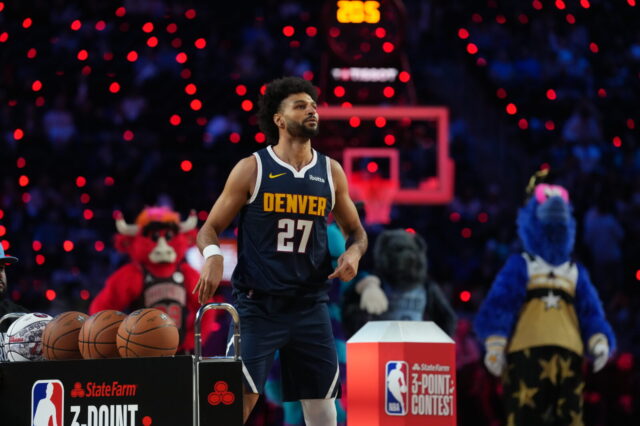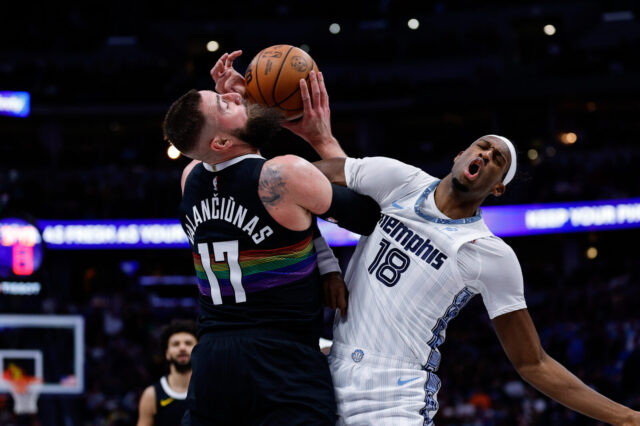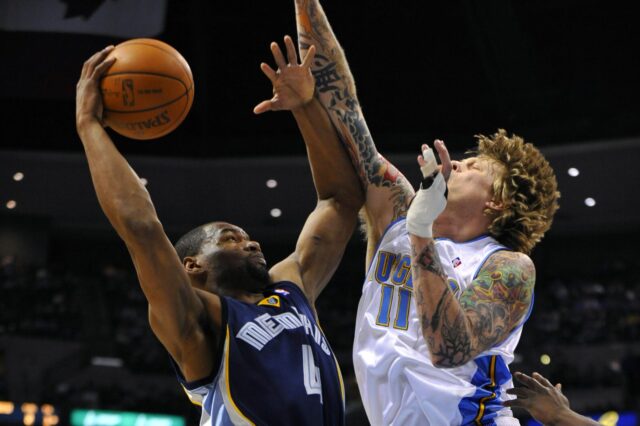We've written ad nauseum since the dawn of Denver Stiffs about the two basic "have to's" to win an NBA Championship in the modern NBA.
First, you "have to" have at least two – if not three – Hall of Fame players on your roster.
And, secondly, you "have to" be located in one of the NBA's top-10 markets based on metropolitan area, because that's where the modern NBA players want to be.
If you have both things going for you – as virtually every NBA Champion has had since 1980, such as the Los Angeles Lakers, Chicago Bulls, Boston (right on the cusp as the 10th biggest metropolitan area in the United States) Celtics and Miami Heat – an NBA title is well within one’s grasp. If you have just one of those things going for you – such as the San Antonio Spurs from 1999-2007 and the Detroit Pistons from 1989-90, each of whom won with Hall of Fame talent despite being from a non-top-10 market – you can still win it all but it’s less likely.
And yet, with just four teams remaining in the 2013 NBA Playoffs, only one fits the mold of the first two "have to's": the 2012-13 Miami Heat who feature two Hall of Fame players plus one perennial All-Star and the NBA's eighth biggest market. And only one fits the mold of the second "have to": the 2012-13 San Antonio Spurs who feature three Hall of Famers playing at the tail end of one of the NBA's all-time great runs for a single franchise.
The remaining two conference finals participants are, of course, the Indiana Pacers and Memphis Grizzlies, representing the NBA’s sixth and fourth smallest markets by size, respectively (Denver, in case you’re curious, ranks as the 13th smallest NBA market). Not only are Indianapolis and Memphis tiny (combined, the two metropolitan areas are smaller than Minneapolis), but neither team features the requisite two Hall of Famers necessary to compete for an NBA Championship … in fact, there may not be one Hall of Famer on either team combined.
Now granted, Indiana and Memphis may be conference finals participants due more to good fortune than prudent professional basketball team-building, but this is why you make the playoffs in the first place whenever possible: anything can happen.
Memphis, for example, appears to be the direct beneficiary of the Oklahoma City Thunder (another small market team like San Antonio that featured perhaps three Hall of Fame players on the roster before this season began) losing James Harden via trade and Russell Westbrook via injury. But before besting the Thunder in Round 2, the Grizzlies were able to take out the giant-market Los Angeles Clippers who feature a Hall of Fame point guard in Chris Paul, a potential Hall of Famer in power forward Blake Griffin and a deep bench that only a big market team can buy.
Meanwhile, the Pacers have the privilege of playing in the Leastern Conference. A conference so bad that Carmelo Anthony, J.R. Smith and Kenyon Martin can get out of the first round despite losing Game 5 at home and virtually collapsing in a closeout Game 6 on the road. (Sorry, had to.)
But while watching the Grizzlies take on the Spurs now and the Pacers about to take on the Heat this Wednesday, Nuggets fans everywhere can’t help but have an “it could’ve been us” feeling. In fact, it feels worse than that. It would be one thing if every conference finals participant were laden with Hall of Fame talent – as we saw last season when the Final Four consisted of Miami, Boston, San Antonio and Oklahoma City. But instead, we have two participants in Indiana and Memphis doing what Denver was supposed to do. Remember, it was our Nuggets after all that were supposed to be the small market, no-Hall-of-Famers team that marched through the NBA playoffs and turned NBA tradition on its head. Conversely, our Nuggets showed so much respect for the regular season that they forgot to respect the post-season.
So maybe next season, the Nuggets should concern themselves more with competing in the playoffs than racking up regular season wins. Because if the 2013 NBA Playoffs have shown us anything, it's that your market size, seeding and how many (or how few) All-Stars you have don't really matter.
It's how you play when the opportunity presents itself.


